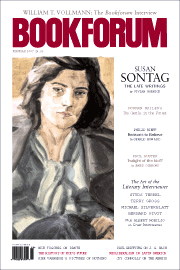
“We were fractious and overpaid. Our mornings lacked promise. At least those of us who smoked had something to look forward to at ten-fifteen. . . . We thought moving to India might be better, or going back to nursing school. Doing something with the handicapped or working with our hands.” So begins Joshua Ferris’s much-anticipated debut novel, Then We Came to the End, an amusing satire about a collection of artists and writers working at a downsizing ad agency. As the first Internet boom wanes, they fumble to devise a series of pro bono advertisements for a breast-cancer organization (which may be a front) under the direction of their inscrutable boss (who may have the disease).
It’s an impossible project, they tell us by way of group narration, a clever use of the first-person plural. Similar to Kate Walbert’s Our Kind: A Novel in Stories (2004), which received critical acclaim for using the technique, Then We Came to the End offers a glimpse of a community and its collective thinking. Whereas Walbert shed light on a group of suburban women coming of age in the ’50s, Ferris unfurls a claustrophobic office with its stifled dreams, petty antics, unbridled jockeying for position, and takeout penne alla vodka. It’s a world where “nailing” the concept is everything to the employees—the source of their very identities and the means to collecting their inflated paychecks. Ferris has indeed nailed office life and the ad business; he is masterful at conveying the details that breed boredom and dissatisfaction and at finding humor in office culture. But his sensibility is more cartoonish than irreverent, and much of the material feels dated in the wake of a few seasons of The Office.
On a more troubling level, the first-person plural disassociates the characters from their narrative, as if they’ve been sketched out in a screenplay and are waiting for actors to imbue them with emotional weight. One stunning exception comes midway through the book, when Ferris substitutes for his often-bombastic narration a restrained third-person-singular look into one woman’s life. That she happens to be the boss who is grappling with her own mortality is significant, but more trenchant is the microscopic view of her aspirations, her successes and failures, what she’s given up to be where she is. This affecting portrait bodes well for Ferris’s future.
As for Then We Came to the End, it’s a toss-up. Readers attuned to Ferris’s sensibility may find the book hilarious, a stylistic coup, and a bristling commentary on office life. Those expecting a more incisive look at corporate culture and the lives swept up in it will be disappointed.
